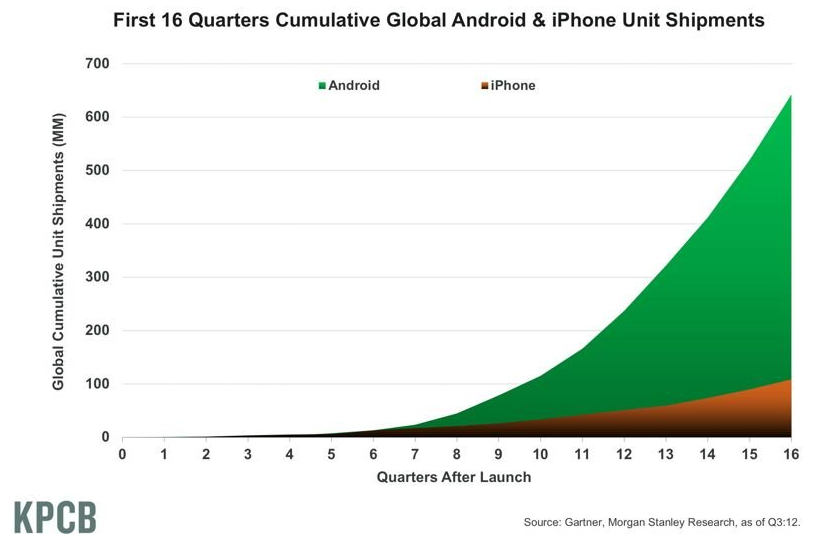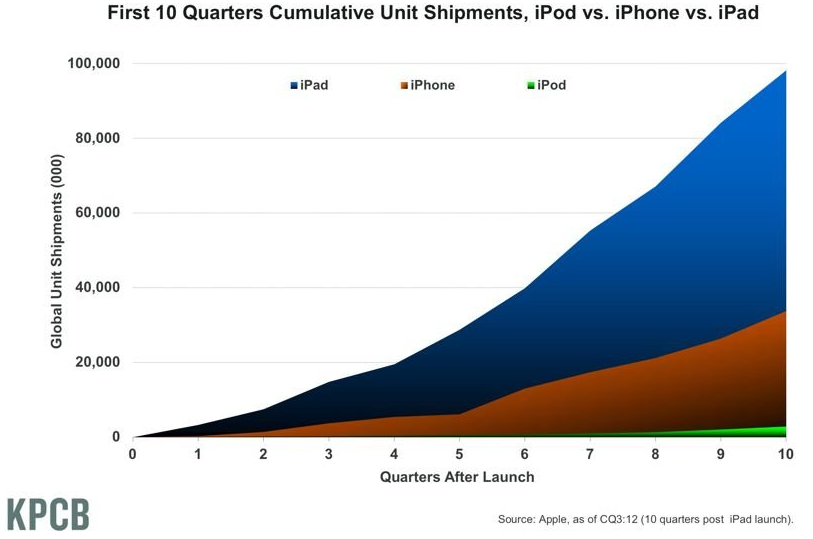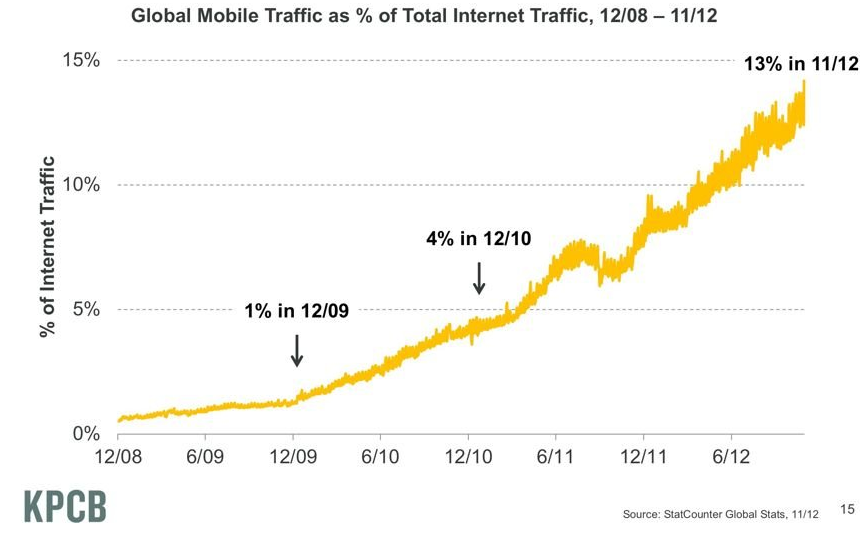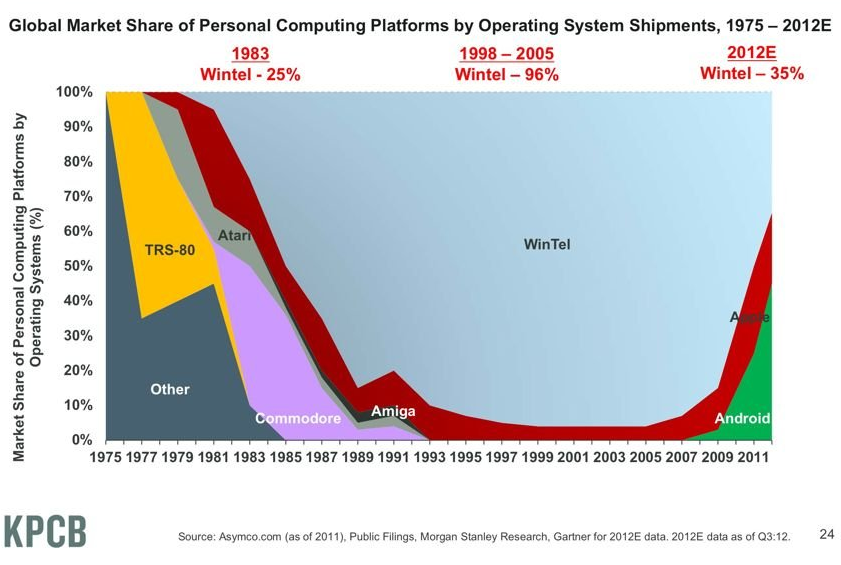Four Charts That Illustrate The Transformation of Personal Computing
Venture capitalist Mary Meeker gave her year-end “State of the Internet” presentation last week, to much geeky fanfare. In her talk, Meeker, who works for Kleiner Perkins Caufield & Byers, used several telling charts to reiterate something we’ve known for a while: the trend shaping the Web is the explosion in popularity of connected mobile devices.
Below are four charts from the comprehensive presentation that illustrate the transformation underway in the market for personal computing devices.
1.) Android smartphones are taking over over the world.
Manufacturers that offer relatively low-priced Android smartphones—especially Samsung—are having particular success compared to Apple in developing economies as the smartphone market goes global. (See With Smartphone Sales, Samsung Is Already Pulling Ahead of Apple).

2.) Tablets are flying off the shelves.
The chart below refers only to the first 10 quarters of iPad sales, but other tablet makers are now gaining traction as well. (See Competitors Challenge Apple’s Grip On the Tablet Market)

3.) Mobile Internet traffic numbers are lifting off.
Linear growth over the past 4 years means mobile devices now account for 13 percent of all Internet traffic.

4.) The Windows-Intel combination is quickly losing its position.
Microsoft is desperately trying to regain its foothold through Windows 8 and the Surface Tablet. Intel, meanwhile, has largely missed out on the mobile market. (See The Pressure’s on for Intel)

Keep Reading
Most Popular
Large language models can do jaw-dropping things. But nobody knows exactly why.
And that's a problem. Figuring it out is one of the biggest scientific puzzles of our time and a crucial step towards controlling more powerful future models.
How scientists traced a mysterious covid case back to six toilets
When wastewater surveillance turns into a hunt for a single infected individual, the ethics get tricky.
The problem with plug-in hybrids? Their drivers.
Plug-in hybrids are often sold as a transition to EVs, but new data from Europe shows we’re still underestimating the emissions they produce.
Google DeepMind’s new generative model makes Super Mario–like games from scratch
Genie learns how to control games by watching hours and hours of video. It could help train next-gen robots too.
Stay connected
Get the latest updates from
MIT Technology Review
Discover special offers, top stories, upcoming events, and more.